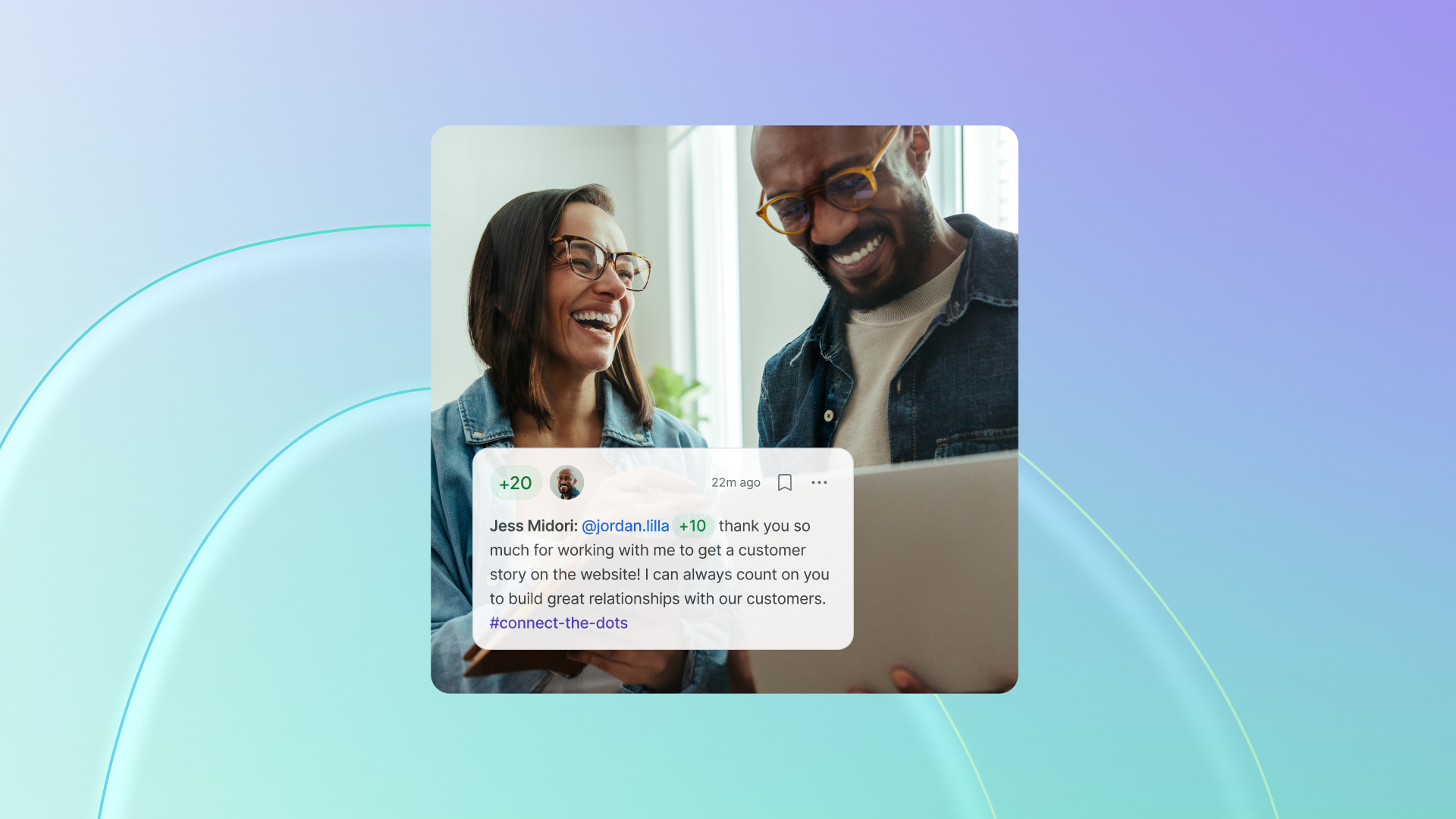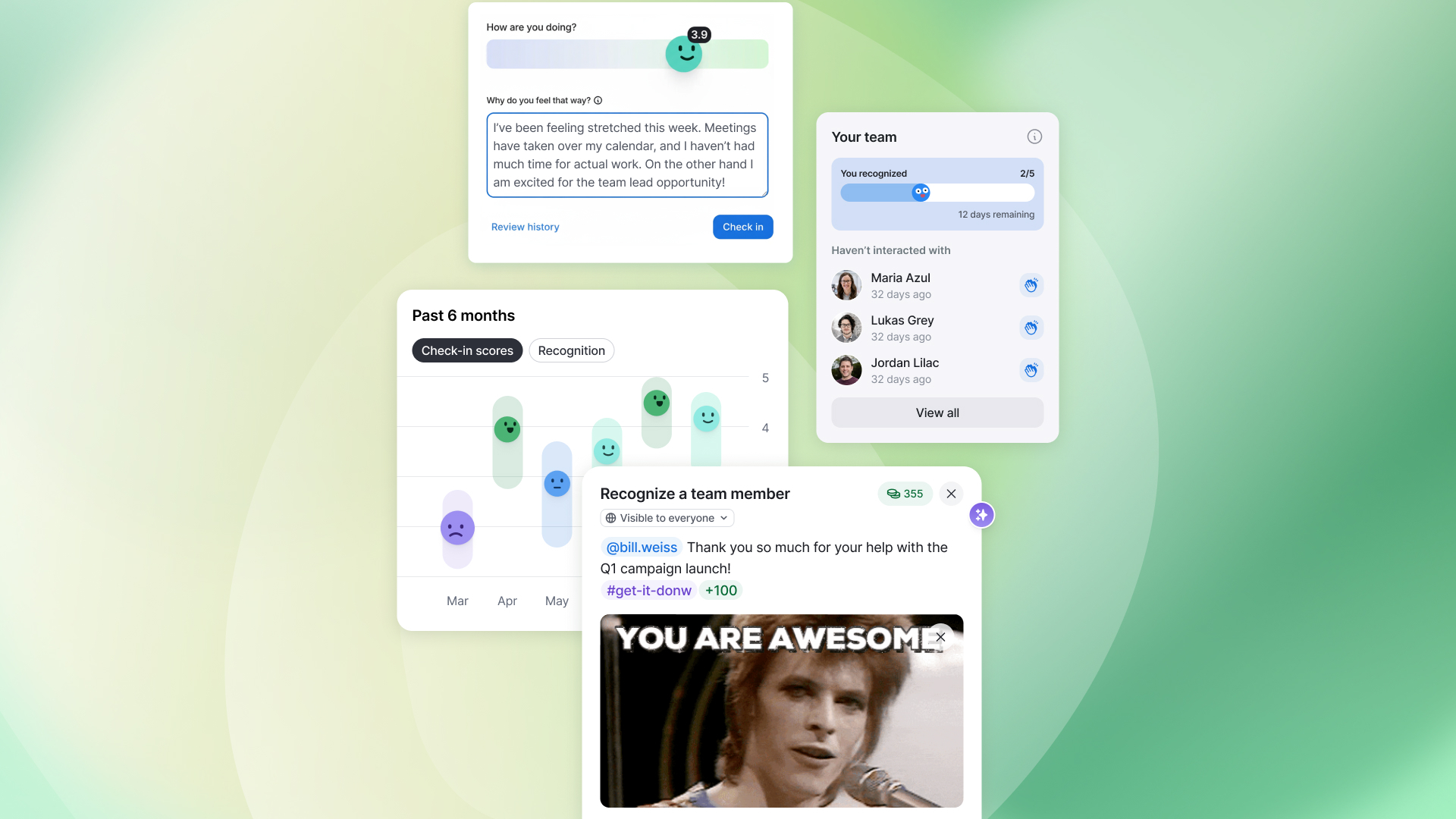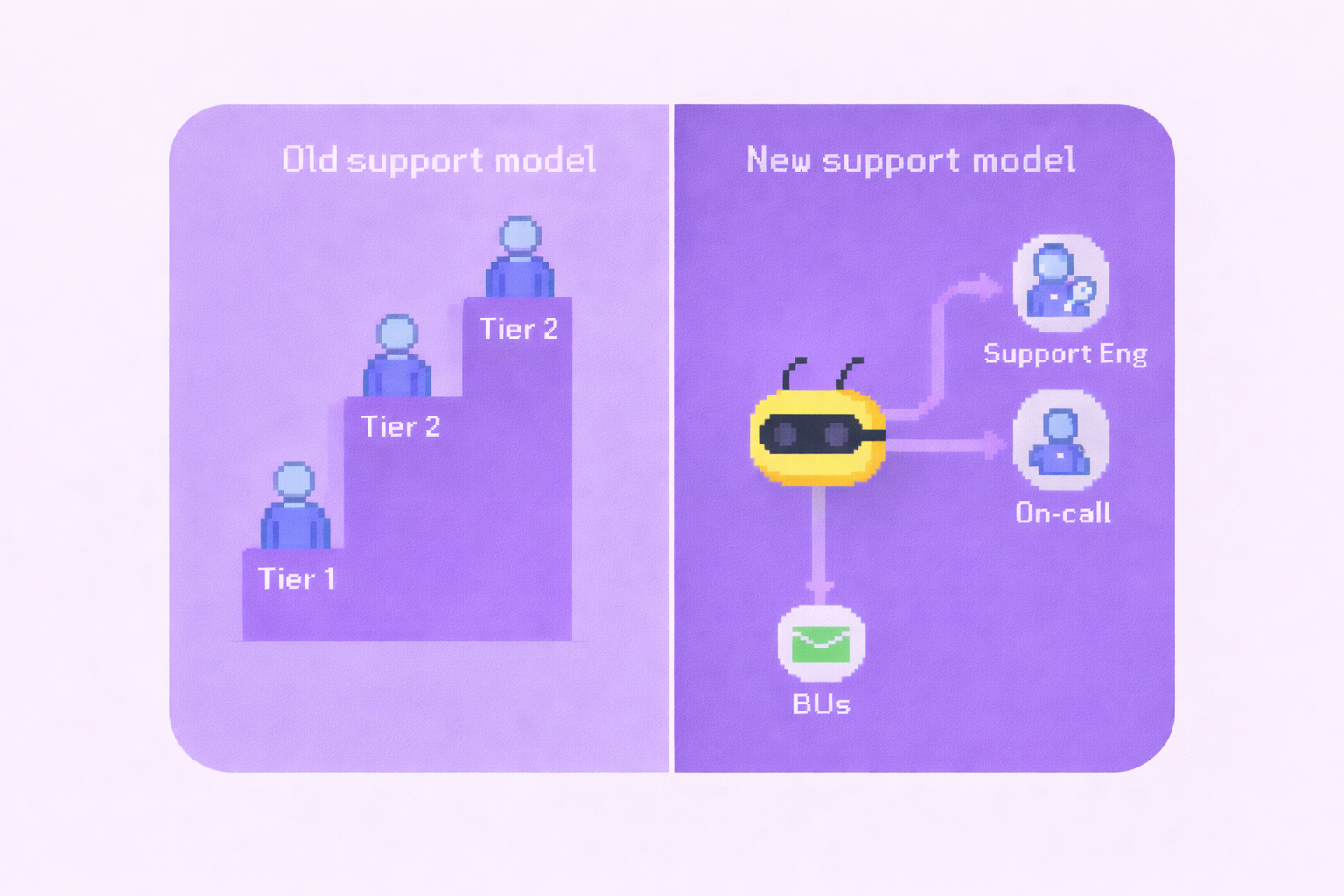A Guide to Managing Your Manager During One-On-Ones

Have you ever had a really terrible manager? As in, so bad you would actually leave your job to get away from them? You’re not alone. According to Gallup’s State of the American Manager Report, 50% of employees have left a job to get away from their manager at some point in their career.
Sometimes, bad managers are beyond repair (we’re looking at you, Bill Lumberg). However, in many cases, employees can proactively improve their relationship with their manager. How?
By managing up during one-on-one meetings.
In this guide, we’ll walk through:
- What is managing up?
- Why should you manage up in one-on-one meetings?
- 5 Ways to manage up in one-on-ones
Let’s dive in!
Download our free One-on-One Meeting Agenda Template to improve meetings with your manager!
What is managing up?

Managing up is the idea of managing your manager — from providing a continuous stream of feedback to help them level up their management skills, to coming prepared with answers to one-on-one meeting questions you know they’re going to ask. Managing up is a great relationship-building tool between direct reports and their manager.
An example of what managing up can look like
If you’re a marketer, for example, when asking for feedback on an article, instead of just hitting the share button on a Google Doc, add some context.
Hi [your manager’s name],
Can you please review this article I wrote? The specific feedback I need includes:
- Is the content in line with our messaging?
- I need help finessing the second section (I’ve highlighted it for you)
- Grammar check
Something like this will not only use up less of your manager’s time, it will also ensure you get the feedback you’re looking for. This is just one of the many examples of what managing up looks like!
Why should you manage up during one-on-one meetings?
One-on-one meetings are a dedicated time for you and your manager to speak without any distractions or interruptions. A great one-on-one is void of status updates, and is instead focused on things like:
- Your growth: Where you are and where you’d like to be
- How you can improve the way you communicate and work with one another
- Projects you’d like to work on
- Coaching sessions
- Sharing feedback with one another
When you’re able to use this time to discuss these things, you’ll end up with a more positive and productive relationship.
Reduce your manager’s stress
68% of managers struggle most with juggling to manage their team with other responsibilities. If this is the case for your manager, you may be finding less time with your manager than you would like in an ideal world. That’s why you need to make the most out of one-on-one meetings.

When you’re in an environment like a one-on-one meeting, you’re already having an open dialogue with your manager. So, this is a great opportunity for you to dig in and learn more about:
- What’s stressing them out right now
- If there’s something you can take off of their plate
- Any feedback they have for you that would improve your working relationship
When you focus not only on how your manager can better support you but also how you can do the same for them, you’ll be able to help reduce their overall stress (and maybe free up some of their time too!).
5 Ways to manage up in one-on-ones
Managing up goes far beyond sharing feedback and anticipating your manager’s needs. Let’s walk through five ways you can start effectively managing up, including:
- Address common questions before they’re asked
- Learn about their management and learning style
- Provide constructive feedback consistently
- Share recognition: It’s a 2-way street
- Use a meeting agenda
1. Address common questions before they’re asked

Let’s make one thing clear: You’re not a mind reader and you’re not expected to be one. However, if you see that you’re being asked the same questions week-over-week or with every project, it’s easier to understand what information you should be sharing with your manager before they feel the need to ask.
Think about it this way: If you’re responsible for a set of KPIs, share those updates prior to every meeting. By doing this, you’ll be able to minimize the status update talk because that information will already be known by the two of you. Instead, you can discuss blockers and strategies that will help you hit your targets successfully.
2. Learn about their management and learning style
When you have a deeper understanding of how your manager likes to receive feedback and their management style, you’ll be able to communicate and work better together. If they’re someone who prefers to receive feedback in writing, that’s the way you should deliver it.
If you want to learn more about how they receive feedback, try adding this agenda item to your next meeting: How do you prefer to receive feedback? Verbally, written, or in another form?
There are so many one-on-one meeting questions you can ask to continue to learn about how the other works. In turn, this will help you manage up effectively and communicate better.
3. Provide constructive feedback consistently

Feedback is an incredible tool for growth and development and should be shared continuously between you and your manager. Giving effective, actionable, and emotionally intelligent feedback, however, is where you might need some finessing.
When providing feedback, be as specific as possible. Sharing examples is a great way to help paint a picture of how they can do better in the future. Think about these two statements and decide for yourself which would be more helpful to hear:
- I’d like to be included more when you’re scoping out work for any upcoming projects I’m involved in.
- I’d like to be more involved when you’re scoping out work for any upcoming projects I’m involved in. With the last two projects I worked on, it felt like I was spread too thin. When you’re scoping out future projects, I’d love to be involved in the process so that I can share my experience on how long I think things will take. What do you think?
When you’re able to share context and specificity, it makes it easier for your manager to take action on feedback (especially when you set action items after the discussion!).
Another important thing to remember is that constructive feedback doesn’t always have to happen when there’s a big red flag. In fact, providing information about where they’re most helpful is a great piece of feedback to share with your manager; It saves them time and gives you exactly what you need from them.
4. Share recognition: It’s a two-way street
Everyone loves (and deserves) to be recognized. It’s not just something that happens top-down or laterally. There are so many ways that you can share recognition, like:
- Writing notes
- Giving shoutouts
- Highlighting anniversaries
- Celebrating birthdays
- Implementing a peer recognition platform like Bonusly
Recognition is also a great way to reinforce the behaviors you want to see more of from your manager. If they shared hard news well, if they did a great job coaching you recently, whatever it is, call it out and give them some kudos for being a great manager.
5. Use a meeting agenda

When it comes to one-on-one meetings, you need an easy way to collaborate on the agenda, document what’s discussed, and assign the next steps. A one-on-one meeting template will allow both of you to prepare to add to and discuss what’s on the agenda in advance, enabling you to have better conversations when you meet. Having a shared agenda will also reduce the status update chatter because you can add all of that information to your agenda and address it asynchronously before the meeting even happens.
Having the opportunity to add next steps as well means that when you share feedback, you can hold each other accountable for the next steps you agree to. If it’s as simple as taking time to process the feedback and discuss it again during your next meeting, this will serve as a great reminder to prepare for that conversation.
Managing up is one of the most effective tools in your belt as a direct report. Not only will you empower your manager to grow and develop their skills, but you’ll also build a better relationship with your manager!







